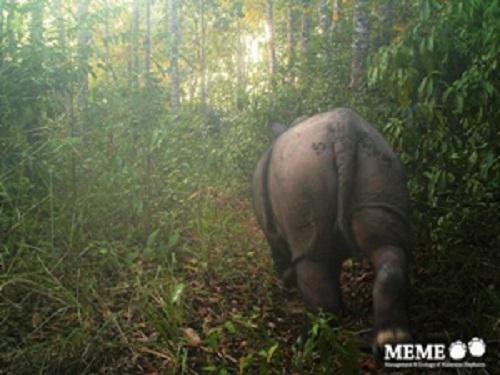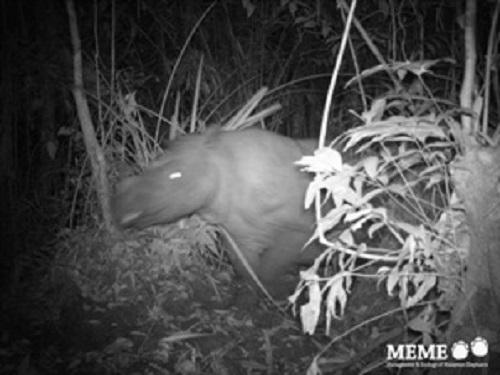Firmann Aldy
In this study we will investigate rhinoceros dung to provide preliminary information on seed dispersal and critical plant-animal mutualisms that may have significant repercussions for the ecosystem.
Sumatran rhinoceros have been described as highly frugivorous and, consequently, may be important seed dispersers, particularly of large fruits. Yet no seed dispersal data is available for any Southeast Asian rhinoceros species. Conversely, a major problem of captive Sumatran rhino management is the limited understanding of the species’ diet and it is critical to document the diet of wild animals to identify the requirements of wild and captive populations. Hence, an understanding of rhinoceros-fruit mutualisms is essential for both forest and rhinoceros conservation management.

Something that is often overlooked, however, is that rhinoceroses, like any other megaherbivore, are not isolated entities. They are an active part of the very same ecosystems they inhabit, probably a part with a disproportionate effect on ecosystem processes — e.g. Sumatran rhinos modify their environments creating wading pools, maintaining permanent trails, recycling nutrients with their faeces, modifying forest understory with their feeding, and of course dispersing seeds. These are mere speculations since as for today there is (to our best knowledge) no single study about the ecological importance of rhinos and how the ecological trajectories of their habitats change with their local disappearance.

This is the gap we are trying to start to fill with this pilot study — we will use frugivory and seed dispersal as a starting point to understand the ecological requirements and role of Sumatran rhinoceros in the wild. In this pilot study we will identify:
1) Plant species eaten and dispersed by rhinoceros over one fruiting season;
2) Pattern of seed deposition; and
3) Plant species that may be dependent on rhinoceros for dispersal.
Because our work is based on the non-invasive collection and inspection of rhino faeces we will also:
4) Collect faecal samples to be used in a future molecular study about the demography of the population.
The study will be conducted in Way Kambas National Park, Sumatra, from late June to late September 2011.